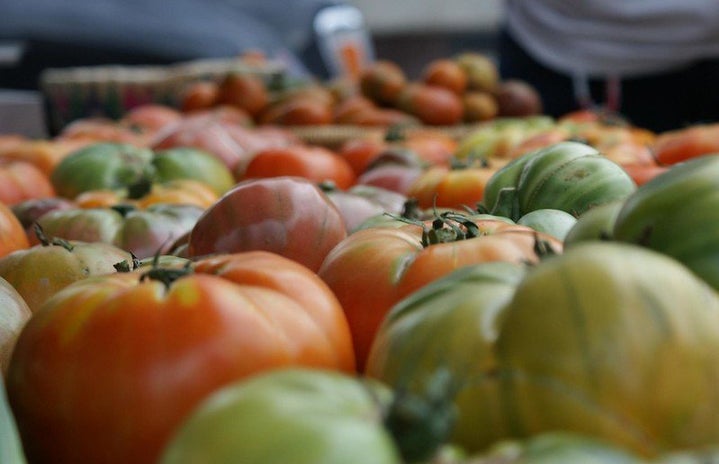Let us see if I can summarise my last year of university so far: I have got three essays due in the next two weeks (none of which I have started), I really need to make a start on my dissertation (which I have not), & it is essential that I find & secure a grad job (that I have actually been doing…but with a current 100% rejection rate).
In short, I am panicking.
It does not help that I am a chronic procrastinator either. It is something that I am determined to combat, & that is where these ‘productivity hacks’ come in.
I have considered many pieces of Tiktok’s advice (such as listening to random songs or the Mario Kart soundtrack on repeat), but as an English literature student, a large portion of my work requires careful reading in high quantities & I just don’t have the ability to produce good work whilst listening to Coconut Mall for hours on end. A hesitant google search (something along the lines of ‘how to be more productive quick help’) provided me with what could be my saving grace: the Pomodoro technique.
A therapist actually recommended this method to me last year when I brought up about my productivity issues. I have never struggled with actually producing good work by the deadline, but I did not want to leave it to the last minute anymore (waking up at 3am the morning of the midday deadline, not having started the essay yet, was not the one). She talked me through it, & the Pomodoro method sounded great. But, when it came down to implementing it for the first time, I hated it. I never tried it again.
When I thought about trying this method again in desperation, I brought it up at a Her Campus newsroom meeting. A colleague reassured me that her first time had been awful too. “But stick with it,” she said, “because before you know it, it will change your life.” Those were her actual words. I am not very cynical; maybe this was magic that could cure me. So here I am now, trying to change my life.
The pomodoro method, put simply, is this: you work in 25-minute increments (a pomodoro), & then take a 5-minute break. When you have completed four pomodoros (a set), you then take a longer break (30 minutes). Repeat.
Experienced users recommend that you start your day with a visual ‘To-Do list’. Once you decide which task to work on within a pomodoro, you should focus solely on that. If you do not complete the task, that is perfectly okay – just take a quick break & continue in the next pomodoro. If you complete your chosen task within the pomodoro with time to spare, instead of starting a new task, take the time to review & reflect your work or make plans for your remaining set.
After my first two pomodoros this time around, I wrote this:
“I am remembering the reason why I found this method so difficult last year. As a side effect of constantly leaving everything to the last minute, I am used to doing whole assignments for 9+ hours with no breaks. So far, this has worked out pretty well for me. Therefore, changing my routine to involve regular breaks (which seem to appear just as I am getting properly stuck in) is tough, to say the least.”
It is now several days later, & my opinion has officially changed. It took a few days, I know! I still somewhat agree with my past self, & I often find myself disappointed when I realise I’m due for a 5-minute break, because I am worried that I will not be able to restart. But guess what? If you are strict with yourself & keep to the 5 minutes, it will take about 30 seconds to get into your previous frame of mind. The therapist actually said something about the sub-consciousness still working while you are on a break, but I cannot comment on the validity of that. It makes sense to me though!
Allowing short & regular breaks as part of your studying has proved fantastic – it sounds silly when I say the Pomodoro technique helps you create a healthy relationship with taking a break, but they are important! I guess I was used to working non-stop, which meant that my breaks were turning into two/three/four hour-long Netflix binges. They then led me feeling guilty about taking breaks (which is not healthy), as my days were becoming wasted. The Pomodoro technique means that I have the energy to fully commit to those 25-minute sessions. They are kind of turning into mini competitions with myself, where I am trying to see how much I could possibly get done in that short timeframe. I now get more done than ever before!
I love how a set of the Pomodoro technique adds up to 2 hours exactly, meaning that if I ever have an hour’s gap between meetings or seminars, I can allow myself two pomodoros & feel productive & successful. I know that productivity is sometimes hailed as being the be-all-and-end-all, but by using this method I have seen how striving for productivity with regulations allows me to take appropriate time for myself outside of studying or working. Productivity & self-care do not have to be mutually exclusive. I feel happier, knowing that I am fulfilling my responsibilities whilst taking care of myself.
So, if you are looking for a way to get started with that ever-growing stack of work (I’ve been stuck in a hole like that hundreds of times, feeling as though I would never get out) or if you are panicking about a deadline, I would really recommend this method. It did not come easily to me to implement regular & healthy habits, but I am so glad I did.
For the first time ever, I feel as though I’ve found a sustainable way to get everything done.
I hope this works for you like it has for me. Good luck – please let me know how it goes!
PS. There are loads of free apps you can download with customisable timings if the ones mentioned are not really working out for you, & there are also various YouTube videos to help you stick with the timings (just type in ‘pomodoro technique’). I really like the Harry Potter ones because a) I am a nerd & b) you can daydream you are somewhere fantastic whilst studying!
Words By: Megan Clayton
Edited By: Charlotte Almey


